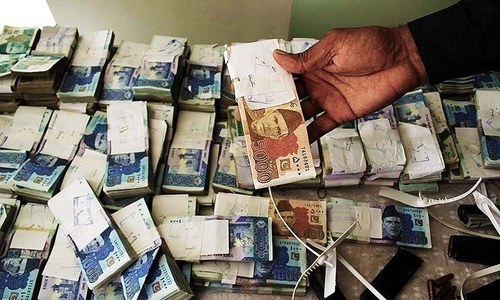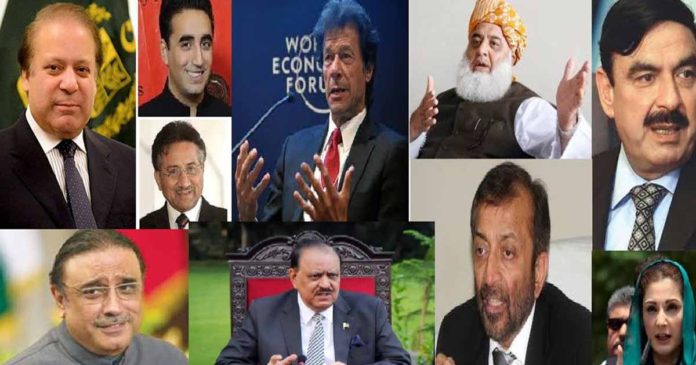Dear Reader,
It is an irony that even after almost 7 decades since its birth Pakistan is still in the quest for a stable democratic system. While the process of democratization has been very slow, its nature has remained fragile and vulnerable to nondemocratic interventions, this despite our founding fathers ardently supporting and emphasizing upon democracy believing it could invigorate the governance structure and body politic of Pakistan. Sadly this has not happened. Among the many threats to democracy is the absence of Sound political infrastructure frequent military interventions prevented the growth of political culture. The fault however does not lie with military coups alone, almost all our political parties, with the exception of perhaps one or two, lack democratic values, these parties not being established on modern and democratic lines they are usually ‘one man shows’ of family politics. Political parities are supposed to be the nurseries of democracy but in Pakistan they are plagued with outside influence, personal interests, short term goals, corruption and dynastic politics. Democracy cannot exist or consolidate its process in the absence of vibrant and efficient political parties. Feudalism is another curse why democracy has not to taken firm roots; almost 60% of people in Pakistan live under the feudal system to which most of our politicians belong. With feudalism driven by principles of one person show, oppression, bondage and slavery, can one expect democracy to thrive? Politics today revolves around legacies and personality cults rather than making the parties strong enough to choose their leaders. For the benefit of readers my article titled “MAKE-BELIEVE DEMOCRACY” is being reproduced.
Such is the terror of possible retribution by those in governance that even a man of AD Khawaja’s conscience and inherent integrity finds it impossible as IG Police Sindh to function unless he “unscrupulously” implements “Zardari’s law” in Sindh. Khawaja having neglected to adhere to some of the directives by members of the political party running the Sindh Govt with a penchant for misusing the police rank and file for criminal purposes, they want to dispense with his services.
The Sindh High Court (SHC) stayed Khawaja’s sacking by the Sindh Cabinet on Zardari’s diktat till now. After his infamous “Hoshiar” out burst, the PPP Co-Chairman returned from abroad only after Gen Raheel Sharif had safely retired. Zardari, like others in governance in Pakistan, is testing Gen Qamar Bajwa’s reaction to Army-bashing, does the COAS abiding faith in “preserving democracy” have fail-safe lines?
The State apparatus for political and personal agendas is very much a part of governance in Pakistan, not unlike many countries of ·the world. Imposing of the will of a criminal minority on the majority of the population and depriving them of their basic rights by forcible use of the State apparatus is garbed as “democracy”. Who will uphold the law if those meant to uphold the “rule of law” become a law unto them· selves. What mechanism does the Constitution have to counter this except by forming a JIT for Panama Gate even the Supreme Court (SC) has tacitly agreed that the appointees, political or bureaucrat, put as heads of institutions, are not likely to hold the rulers accountable. The “Dawn Leaks” saga has shown that for reasons unknown even the Army had to back down. This has not being taken well by Bajwa’s rank and file and there has to be a plausible explanation, this matter is far from over.
JIT’s carry out criminal investigations, the video confessions must be aired (and transcripts published) to show how elected leaders and public officials’ criminally misuse the state apparatus. A proper judicial mechanism must ensure that pending effective laws of evidence and gathering thereof, JITs become a potent arm of the judiciary to serve justice. The Constitution cannot become a camouflage for criminal governance violating the citizen stakeholder’s various inherent freedoms. Inherent corruption morphing into organized crime has seized the very core of running of civil governance. As law enforcement agencies (LEA) become suspect in public perception, over time justice is taken it to be directly proportional to the money and influence deployed. A friend of mine sent me a Frederic Bastiat quote, “when plunder becomes a way of life for a group of men in a society, over the course of time they create for themselves a legal system that authorises it and a moral code that glorifies it”
According to Wikipedia, “When one obeys the spirit of the law but not the letter, one is doing what the au hors of the law intended, though not necessarily adhering to the literal wording.” Adhering to “the wording of the law” rather than “the spirit of the law” more often than frequently allows criminals and terrorists to get away with murder on a technicality. Given our weak “Law of Evidence” suspects escape accountability despite the common public knowledge about their criminal doings. Beholden to those in power for their appointment, political appointees will seldom abide by the moral obligations what to talk about their duties and responsibilities to the State and to its citizens. The motivated debate on the electronic media deliberately (mis) interpreting the wording of the law (and the facts) at will has made the situation even more murky.

The reward for years of dedicated service by three outstanding NAB officials (all former soldiers) who dug out billions from crooks, frauds, plunderers, cheats, etc. was to be “de-notified” because of the technicality of their education qualifications. Did anyone protest Zardari’s education aspiring for President, indeed without declaring his assets as any public official should? Given the extenuating circumstances of their appointment in NAB, which the de-notified officers did not themselves seek but followed executive orders. Were these NAB officials with known integrity and service record made examples of because of their successful prosecution of white collar criminals? The irony is that those celebrating their dismissal are the beneficiaries of “plea bargain”, these include owners of media houses. In a feudal society merit is often a disqualification. With the Armed Forces likely to face similar situations with respect to military officers transferring to civilian establishment in many sectors, the Army has through the Ministry of Defence (MOD) very rightly become a party to the review petition.
The participation of the citizen stakeholders at the grassroots level in a democracy is mandatory. A badly flawed electoral system supports the feudal society that Pakistan has increasingly become. Feudals will never allow local govt, and if it is allowed, never to function effectively. Our apologists for democracy must look at why the citizen stakeholder is deprived of community governance at the grassroots level. Those decrying the Bonapartist tendencies in our previous senior military hierarchy are certainly right, however we cannot use the shortcomings of our previous military rulers as an excuse to condone the massive criminal governance in practice in the name of our present hypocrisy passing as “democracy” today. The- criminal use of the state apparatus in enforcing their version of the “the rule of law” for personal gain is a most dangerous practices.
During the Panama Gate hearings the SC observed that prima-facie evidence of corruption by a holder of public office shifts the onus for proving his (or her) innocence from the prosecution to the defence. Separately the Honourable Chief Justice (CJ) Mian Saqib Nisar quoted Hazrat Umar (RA) setting a personal example, “the accountability of the rulers is different from others”. Maintaining exemplary integrity and morality in the conduct of their office the process of governance by the highest public officials must be beyond reproach. They cannot do any business, or involve themselves in any transaction, directly or indirectly with the public sector. Criminal use of the state apparatus for governance cannot be condoned and/or ignored, the SC is the last bastion of accountability to avoid recurrence of “the doctrine of necessity.”
Raza Rabbani recently refused to come to the Senate “on principle”. One is hoping that given Uzair Baloch’s confessions evidencing criminal’s infiltrating political governance, the Senate Chairman will display similar conscience. Our greater problem are the political hypocrites who deliberately remain deaf, dumb and blind to criminal activity by their colleagues under the guise of democracy.
“The opinions/views expressed in Defence Journal are entirely those of the writers and cannot be construed to reflect the official views of Defence Journal”.




